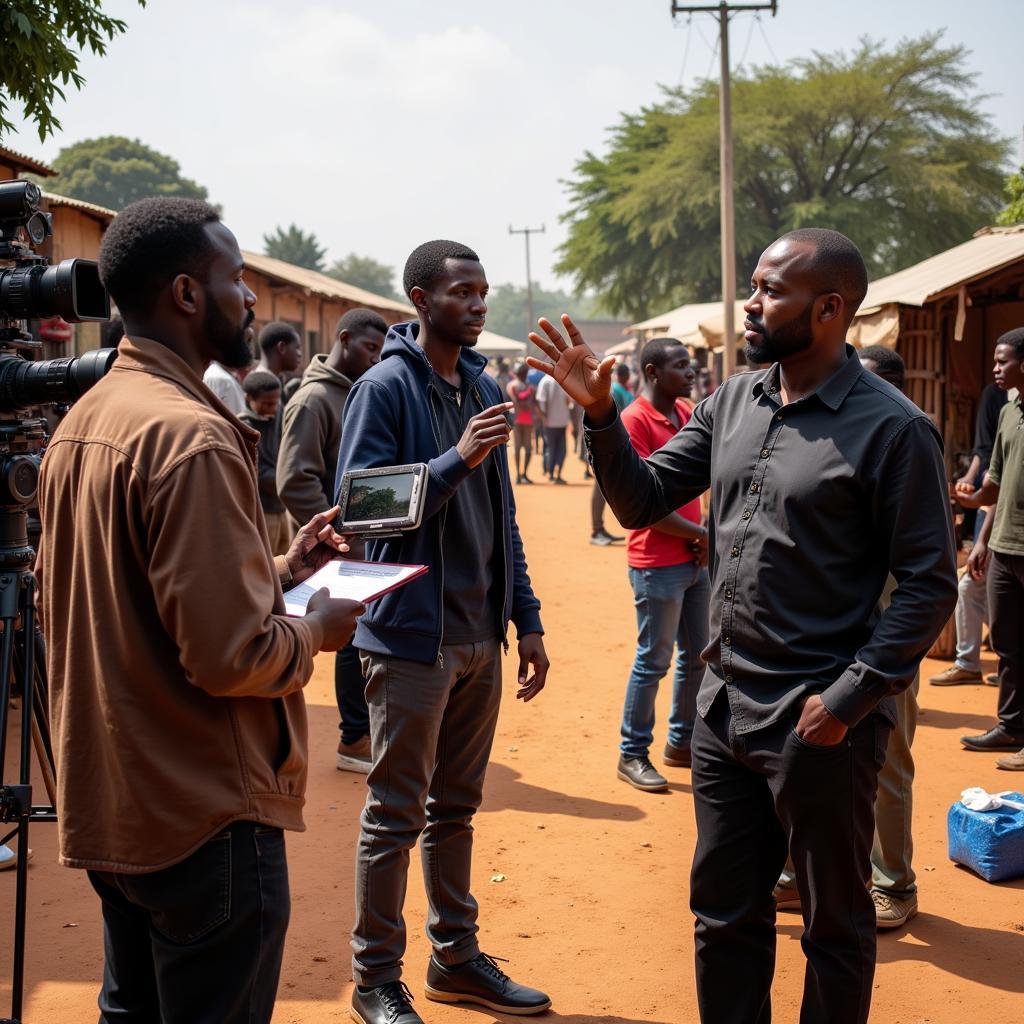Uncovering the Significance of African Ashe
African Ashe is a term steeped in rich cultural significance across the African continent. From its literal meaning as power and authority to its spiritual connections, Ashe represents a vital force that permeates various aspects of life, including traditional healing, religious practices, and even everyday conversations. Understanding African Ashe offers a glimpse into the vibrant tapestry of African cultures and their deep-rooted beliefs.
The concept of Ashe is not merely confined to a single definition. It embodies a complex interplay of spiritual energy, life force, and the power to make things happen. Across diverse African communities, Ashe is understood as the divine spark within all living beings, connecting them to the spiritual realm. This deep connection underscores the importance of respecting nature, ancestors, and the delicate balance of the universe. This belief is deeply woven into the fabric of many African societies and influences their worldview. For example, in many West African traditions, Ashe is invoked during rituals and ceremonies to seek blessings, guidance, and protection. After the opening paragraph, I want to dive deeper into its historical and spiritual significance. This exploration will reveal the multifaceted nature of Ashe and its continued relevance in contemporary African Life. The African Cashew Alliance is an example of a contemporary organization working within Africa.
Numerous traditions throughout Africa recognize Ashe. In the Yoruba religion, originating in Nigeria and Benin, Ashe is considered a fundamental life force and the power to make things happen, emanating from the Orisha, the deities of the Yoruba pantheon. This concept resonated with communities throughout the diaspora, especially in Afro-Cuban and Afro-Brazilian religions, where Ashe continues to be a central element of spiritual practice.
Ashe in Yoruba Cosmology: Power and Authority
In the Yoruba spiritual system, Ashe is often associated with the Orisha Olodumare, the supreme creator deity. It is believed that Olodumare bestowed Ashe upon the other Orishas, empowering them to carry out their specific roles in the universe. This hierarchical distribution of Ashe reflects the intricate order and balance that governs the Yoruba worldview. Individuals can also cultivate and increase their Ashe through righteous living, respectful behavior towards elders and ancestors, and adherence to traditional customs.
Understanding the concept of Ashe provides a deeper appreciation for the cultural richness and philosophical depth of African traditions. It highlights the interconnectedness of the spiritual and physical realms, the reverence for ancestors, and the ongoing quest for balance and harmony in life.
Ashe Beyond the Yoruba Tradition: A Pan-African Concept
While deeply rooted in Yoruba cosmology, the concept of Ashe extends beyond this specific tradition. In other African cultures, similar concepts exist, albeit under different names, reflecting the diverse linguistic and cultural landscape of the continent. These parallel concepts highlight the shared spiritual heritage and interconnectedness of African societies. For instance, among the Igbo people of Nigeria, the concept of “Ike” shares similarities with Ashe, representing strength, power, and authority. Similarly, the concept of “Nommo” among the Dogon people of Mali embodies the life force and creative energy of the universe, echoing the essence of Ashe.
How is Ashe Used in Everyday Life?
The concept of Ashe isn’t confined to religious rituals or spiritual practices. It also permeates everyday language and social interactions in many African communities. People often invoke Ashe when offering blessings, expressing well wishes, or acknowledging someone’s accomplishments. For instance, saying “Ashe” to someone can be a way of affirming their power, strength, or authority. It can also be used to express agreement or support, much like saying “Amen” or “So be it.” The term “African airline crash” sadly reminds us of the fragility of life and the importance of Ashe in seeking protection and blessings.
The Importance of Understanding African Ashe
Learning about African Ashe is crucial for gaining a more nuanced understanding of the continent’s diverse cultures. It sheds light on the deep-rooted spiritual beliefs, values, and worldviews that shape African societies. It also helps appreciate the interconnectedness of African traditions and the shared heritage that binds them together. Even seemingly disparate topics, such as discussing African cashew nuts, can reveal aspects of cultural practice and trade that are indirectly influenced by the underlying principles of Ashe.
Conclusion
African Ashe is a powerful and multifaceted concept that resonates throughout the African continent and its diaspora. It embodies the life force, spiritual energy, and the power to make things happen. Understanding its significance provides valuable insights into the rich cultural tapestry of Africa, its spiritual traditions, and the deep-rooted values that continue to shape the lives of millions. By embracing the concept of Ashe, we can gain a deeper appreciation for the interconnectedness of all living beings and the importance of striving for balance and harmony in our lives. Let’s continue to explore the profound meaning of African Ashe and its enduring legacy.
FAQ
- What does Ashe mean?
- How is Ashe used in Yoruba religion?
- Are there similar concepts to Ashe in other African cultures?
- How is Ashe incorporated into everyday life?
- Why is it important to understand African Ashe?
Common Scenarios and Questions:
-
Scenario: Someone is about to embark on a new venture.
-
Question: How can Ashe be invoked to bless the endeavor?
-
Scenario: Someone is facing a difficult challenge.
-
Question: How can Ashe provide strength and guidance?
Further Exploration:
You might also be interested in reading about the African Cashew Alliance or learning about African American skin rashes.
Contact Us:
For further assistance, please contact us at:
- Phone: +255768904061
- Email: kaka.mag@gmail.com
- Address: Mbarali DC Mawindi, Kangaga, Tanzania
Our customer service team is available 24/7.


